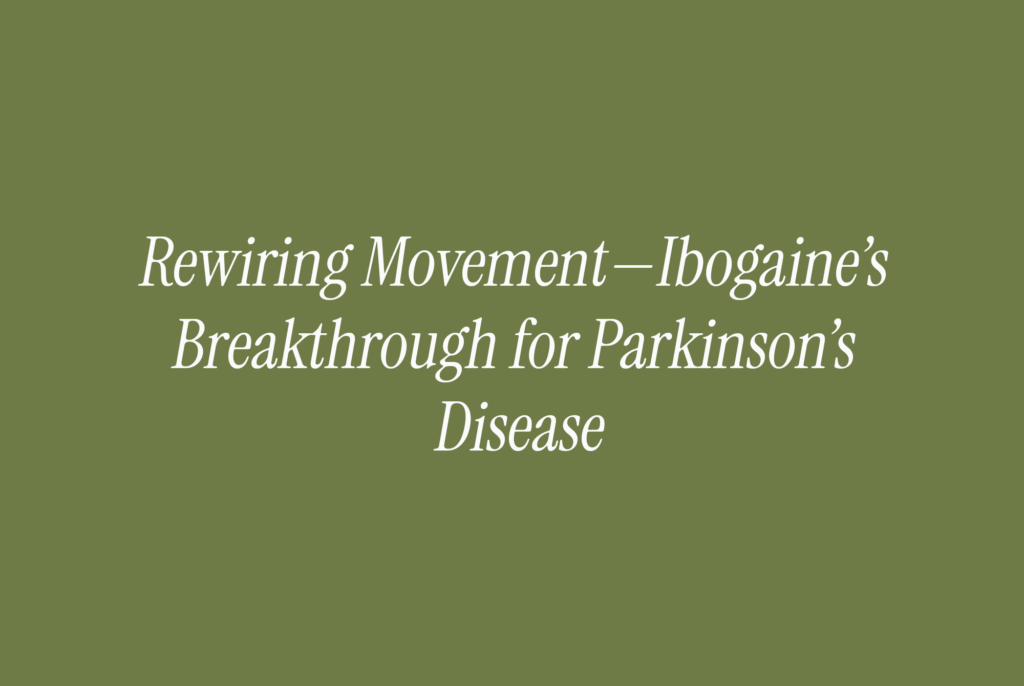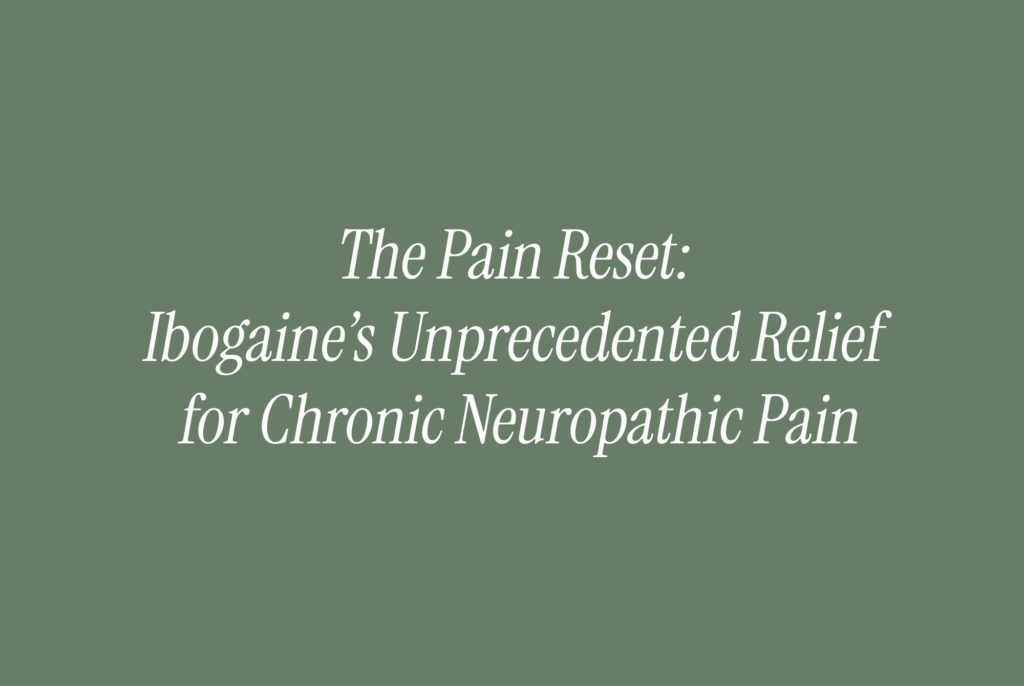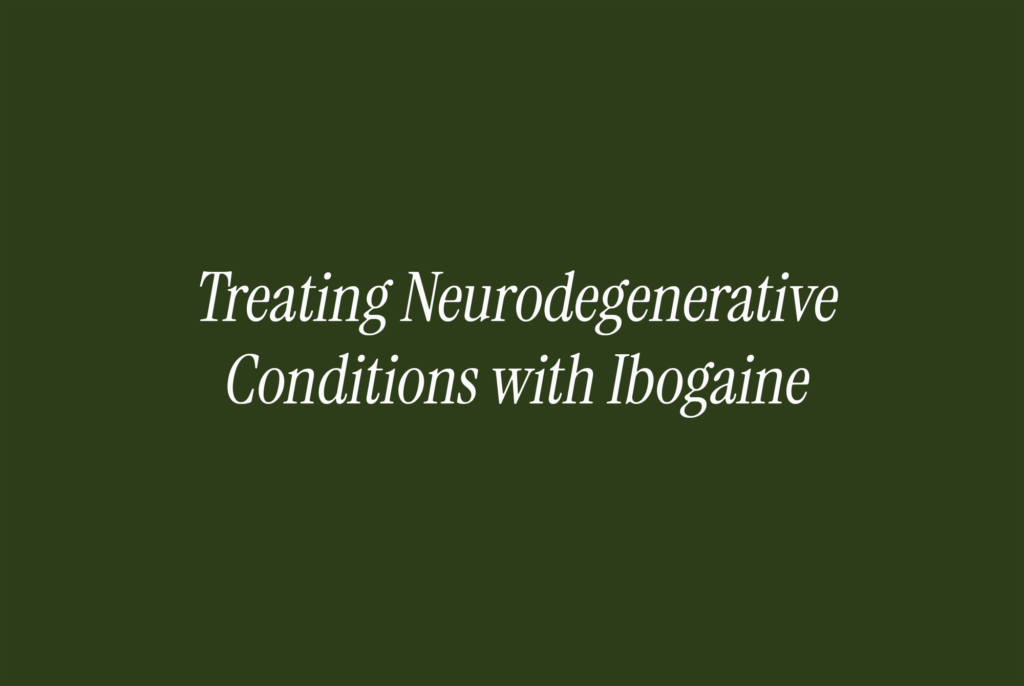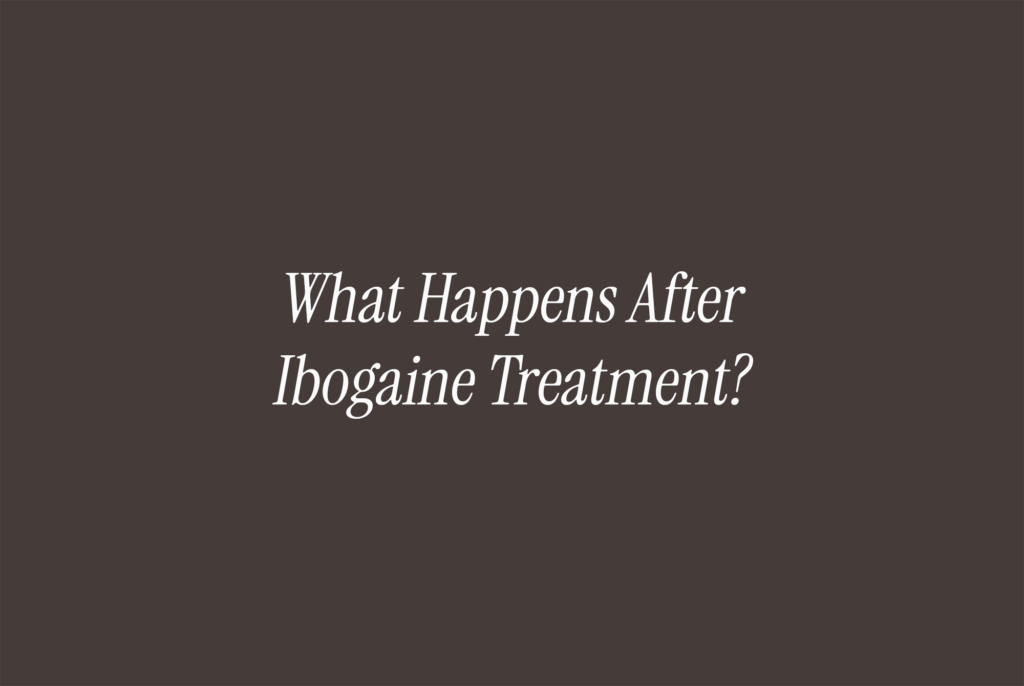How a Psychedelic May Reverse What Medicine Thought Irreversible
Brett Favre, legendary NFL quarterback, received a Parkinson’s diagnosis in early 2024. Specialists believe his symptoms, including reduced mobility in his dominant arm, may stem from repetitive brain trauma over his 20-year career. After receiving ibogaine treatment, Favre reported: “Since coming to Ambio, I’ve felt a real shift, especially in my sleep and energy. For athletes facing long-term effects from their careers, ibogaine is something worth looking into.”
This isn’t just an athlete’s testimonial. It’s a glimpse into what may be the most exciting frontier in Parkinson’s research—and a potential revolution in how we approach neurodegenerative disease.
The Parkinson’s Crisis
Over 55 million people worldwide are affected by neurodegenerative diseases, with Parkinson’s recognized as the second most common after Alzheimer’s. In the United States alone, over 1 million people have Parkinson’s disease, a figure projected to increase by 60% within two decades.
Parkinson’s disease arises from the degeneration of dopamine-producing neurons in the mid-brain, specifically in the substantia nigra. This triggers progressive symptoms: tremors, muscle rigidity, speech impairments, poor balance, bradykinesia (slowed movement), and postural instability. But the devastation extends beyond motor symptoms—cognitive and mood disorders like dementia and depression frequently accompany the disease.
Current treatments offer symptomatic relief at best. Levodopa, the gold standard medication, helps manage symptoms but comes with significant side effects and doesn’t halt the disease’s progression. Over time, patients require higher doses to achieve the same effect, leading to increased complications. Deep brain stimulation offers another option, but it’s invasive, expensive, and not suitable for everyone.
The GDNF Connection
Enter glial cell-derived neurotrophic factor (GDNF)—a protein that supports the survival and growth of dopamine-producing neurons. Research shows GDNF can improve the recovery of dopaminergic neurons and lead to improvement of Parkinson’s symptoms.
The challenge? Previous methods to increase GDNF expression involved complex procedures like gene therapy and direct brain infusions. These invasive approaches showed mixed results and remained inaccessible to most patients.
But ibogaine has been shown to increase GDNF levels in studies done on animals. By increasing GDNF levels, ibogaine may promote the brain’s ability to regenerate dopaminergic fibers, which could improve symptoms by repairing damaged neurons. Columbia University researchers are exploring whether ibogaine could provide a safer and more convenient means to enhance GDNF production in the brain.
The Clinical Evidence
The world’s first clinical ibogaine program for neurodegenerative conditions launched in February 2025, and the initial results are compelling. Ambio Life Sciences soft-launched its Neuroregenerative Program, which has supported 30 patients to date with Parkinson’s, multiple sclerosis, essential tremor, stroke, traumatic brain injury, and ALS.
In one documented case study of 30 Parkinson’s patients undergoing a 14-day ibogaine therapy program at MindScape Retreat, the outcomes were remarkable. By the end of the retreat, average Parkinson’s severity was reduced by 70%. A quarter of patients who continued with maintenance microdoses extended their gains or preserved them over months.
These outcomes far exceed what would be expected from standard symptomatic treatments over the same timeframe, suggesting that ibogaine therapy might address the underlying neurodegenerative processes in Parkinson’s.
The Rapid Response
One of the most striking features is the speed of improvement. Early improvements by days 3-4 showed over 50% symptom reduction, implying that ibogaine quickly enhanced dopaminergic function. Ibogaine and its metabolite noribogaine can acutely increase dopamine availability and stabilize firing in dopamine pathways.
Lyndsey Ryan, chief therapy officer of Ambio, describes the clinical observations: “The relief some patients are reporting so far is motivating, including improvements in eyesight, mobility, and neuropathic pain.” Patients report improvements in both motor symptoms (tremor reduction, enhanced mobility, improved rigidity) and non-motor symptoms (better sleep, reduced anxiety, improved mood).
The Multi-System Approach
Ibogaine’s effectiveness for Parkinson’s appears to stem from its action across multiple systems. It modulates the brain’s dopamine system, potentially increasing dopamine levels crucial for motivation, pleasure, and reward processing. This makes it particularly effective not just for addiction but for neurodegenerative disorders like Parkinson’s.
By resetting dopamine pathways, ibogaine helps reduce motor symptoms while addressing the psychological and cognitive aspects of the disease. The compound also demonstrates neuroprotective properties, potentially slowing or even reversing disease progression—something conventional treatments cannot claim.
Noribogaine’s Extended Benefits
A crucial component of ibogaine’s effectiveness is its metabolite, noribogaine. After initial ibogaine treatment, noribogaine remains in the body for several months, continuing to work on the brain’s neurochemistry. Noribogaine binds to the same receptors as dopamine but without producing euphoric effects, helping to prevent symptom recurrence and supporting long-term relief.
This extended action helps maintain neurochemical stability and support sustained symptom improvement, creating a therapeutic window that extends far beyond the initial treatment.
The Protocol Evolution
Ambio’s protocol for Parkinson’s patients differs from standard ibogaine treatment. It uses an optimized “loading dose” of ibogaine, ideal for people with physical challenges or age-related concerns, as a precursor to extended microdosing. Patients are treated in accessible facilities with medical staff present throughout, and supportive physiotherapy helps explore subtle changes in the body’s motility and mobility.
After therapeutic dosing, patients take ibogaine in very small doses (microdoses) which may have less intense psychoactive effects while maintaining neurological benefits. This approach is designed to honor the complexity of chronic illness and mitigate treatment challenges.
The Research Trajectory
Ambio is conducting preclinical research in partnership with Dalhousie University, supported by a grant from Mitacs, a Canadian innovation accelerator. Researchers aim to examine ibogaine’s effect on neuroinflammatory biomarkers and disease models for Parkinson’s, MS, and stroke.
Meanwhile, a pharmaceutical version of ibogaine, CKBR-12, is under evaluation for treating Parkinson’s disease at partner institutes in Mexico. Early clinical trials have shown promising results in improving motor and non-motor symptoms, significantly enhancing patients’ quality of life. The rapid improvements observed have led to the filing of provisional patent applications for methods that rapidly reduce Parkinson’s symptoms.
Hope Where Hope Was Lost
At Iboga Wellness Institute, we recognize that Parkinson’s patients have long been told their condition is irreversible, that the best they can hope for is slowing decline. The emerging research on ibogaine challenges this narrative fundamentally.
We’re not claiming ibogaine is a cure—the research is too early, the mechanisms too complex, the individual responses too variable. But we are witnessing something unprecedented: measurable improvements in a condition previously considered only progressive. The possibility of neuroregeneration where we thought only degeneration was possible.
For the millions affected by Parkinson’s worldwide, ibogaine may offer not just symptom management, but genuine hope.


















